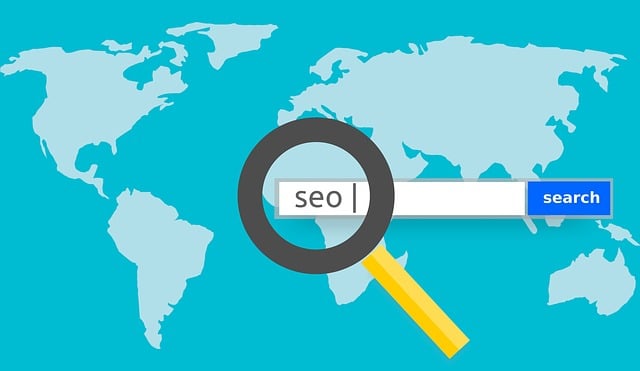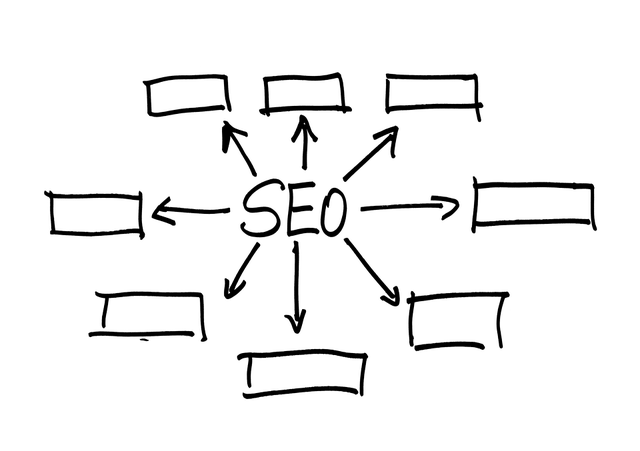In today's digital age, Local SEO is crucial for businesses to attract nearby customers. It involves optimizing websites and online listings to boost visibility in local search results, focusing on providing relevant information when customers need it (e.g., using local keywords, claiming Google Business Profiles, encouraging reviews). Key strategies include:
– Maintaining consistent and accurate business information across digital platforms.
– Creating location-focused content that connects with local customers.
– Claiming and optimizing profiles on major platforms like Google My Business, Yelp, Facebook, and industry-specific directories for 90% of consumers relying on local search results.
– Using location-specific keywords to enhance visibility in local search queries.
– Building local citations from reputable sources to increase credibility.
– Integrating user-generated content (UGC) for enhanced trust and social proof.
– Continuously analyzing Local SEO performance using tools like Google Analytics and Search Console.
– Staying proactive with algorithm updates, building high-quality backlinks, engaging in the local community, and encouraging positive reviews to maintain visibility.
In today’s digital era, Location-Based SEO (Local SEO) strategies are pivotal for businesses aiming to thrive locally. As customers increasingly rely on online searches to find nearby services and products, optimizing your online presence for local queries is no longer an option—it’s essential. This article guides you through the intricate elements of Local SEO, from understanding its relevance in today’s landscape to implementing effective strategies like claiming business listings, leveraging Google My Business, integrating user-generated content, and staying ahead of algorithm updates.
Understanding Local SEO: Its Relevance in Today's Digital Landscape

In today’s digital landscape, where consumers rely heavily on search engines for local information and services, understanding Local SEO has become paramount for businesses to thrive. It involves optimizing websites and online listings to improve their visibility in local search results, ensuring that potential customers find them when searching for products or services within a specific geographic area. This strategy is crucial as it helps businesses attract nearby foot traffic, fosters brand recognition, and drives conversions from local audiences.
Local SEO is not just about ranking higher on Google Maps; it’s about providing relevant, up-to-date information to potential customers at the exact moment they’re searching for it. By optimizing for local keywords, claiming and verifying Google Business Profiles, and encouraging customer reviews, businesses can establish a strong online presence in their communities. This, in turn, leads to increased phone calls, website visits, and walk-ins from locals who rely on search engines as their primary resource for local business information.
Optimizing Your Online Presence for Local Searches

To optimize your online presence for local searches, it’s crucial to ensure your business information is consistent and accurate across all digital platforms. This includes updating your website with a clear and concise description that incorporates relevant location keywords, such as city names or specific neighborhood terms. Local SEO isn’t just about including your address; it involves creating engaging content that resonates with local customers and establishes your brand as an integral part of the community.
Additionally, claim and optimize your Google Business Profile (GBP) listing. This free tool allows you to manage your business information on Google Search and Maps, providing a direct line to potential customers searching for businesses like yours in their area. Regularly updating your GBP with special offers, new products, or events not only enhances local visibility but also encourages customer engagement and interaction.
Claiming and Verifying Your Business Listings on Major Platforms

Claiming and verifying your business listings on major platforms is a crucial step in enhancing your Local SEO efforts. With over 90% of consumers using local search results to find nearby businesses, ensuring your information is accurate and consistent across all directories is essential. Start by identifying the most relevant platforms for your target audience, such as Google My Business, Yelp, Facebook, and industry-specific listings. Claiming these profiles allows you to take control of your online presence, manage reviews, update business details, and connect directly with potential customers searching for your services in their area.
Once claimed, verify your business listings by providing necessary documentation, such as proof of address and business registration. This process ensures that your business is legitimate and helps search engines accurately index your information. A verified listing improves your credibility and visibility in local search results, making it easier for customers to discover and engage with your business. Regularly update and optimize these profiles with relevant keywords, high-quality images, and compelling descriptions to maximize the benefits of Local SEO strategies.
Leveraging Google My Business for Enhanced Local Visibility

Google My Business (GMB) is a powerful tool for boosting local SEO efforts. By claiming and optimizing your business’s GMB listing, you increase your visibility in local search results, making it easier for potential customers in your area to discover and engage with your brand. This platform allows you to manage your online presence by providing a dedicated space to display accurate business information, including address, operating hours, contact details, and even post updates and special offers.
GMB listings also offer valuable features like customer reviews, which can significantly impact local search rankings. Encouraging satisfied customers to leave positive feedback not only enhances your credibility but also attracts new visitors. Additionally, GMB enables you to add relevant keywords and categorize your business appropriately, making it easier for search engines to understand your niche and location, thereby improving your chances of appearing in local search queries.
Utilizing Location-Specific Keywords in Your Content Strategy

In Local SEO, leveraging location-specific keywords is a powerful strategy. These keywords reflect the geographical areas and specific services you offer, making your content more relevant to local customers searching online. By incorporating terms like “plumbers in [your city]” or “local bakery near me,” you signal to search engines that your business caters to a particular region, enhancing your visibility in local search results.
When crafting your content strategy, think about what terms potential clients might use when seeking your products or services locally. This involves understanding the language and preferences of your target audience within specific communities. By naturally integrating these location-based keywords into your website’s content, meta descriptions, and even social media posts, you attract more local traffic and increase your chances of outranking competitors who haven’t optimized for these regional terms.
Building Local Citations: Earning Trust from Trusted Sources

Building local citations is a crucial aspect of effective Local SEO strategies. When reputable sources like industry leaders, local newspapers, or well-known blogs mention your business and provide a link to your website, it significantly boosts your credibility and visibility in search results. These citations act as endorsements, signaling to search engines that your business is legitimate and trustworthy. As a result, search algorithms may prioritize your site for users searching for services or products within your geographic area.
Earning these local citations involves active engagement with the online communities where your target audience resides. It means contributing valuable content to relevant forums, engaging in social media conversations, and reaching out to influencers or industry peers for collaborations or mentions. By consistently building high-quality local citations, you can establish a strong online presence that fosters trust among potential customers searching for local businesses like yours.
Integrating User-Generated Content to Boost Credibility

Integrating user-generated content (UGC) is a powerful strategy for enhancing your Local SEO efforts. When local businesses incorporate UGC into their marketing strategies, they tap into the experiences and voices of their customers, building credibility and trust with potential clients. This type of content provides social proof, demonstrating to new visitors that your business is trusted by others in your community.
By encouraging customers to share their stories, reviews, and interactions with your brand, you create a dynamic and authentic representation of your local business. Whether it’s through online reviews, social media posts, or customer photos and videos, UGC adds a layer of transparency that can significantly impact your search rankings. Local SEO algorithms consider the quality and relevance of content, and UGC offers both in spades, further solidifying your business’s presence in local search results.
Analyzing Local SEO Performance and Adjusting Strategies

Analyzing Local SEO performance is a critical step in refining your location-based marketing strategies. By tracking key metrics such as search rankings, website traffic from local searches, and conversion rates, business owners can identify areas where their Local SEO efforts excel and aspects that need improvement. Tools like Google Analytics, Search Console, and specialized Local SEO analytics platforms provide valuable insights into how potential customers are interacting with your online presence in your specific geographic area.
Once you’ve gathered these data points, it’s essential to adjust your strategies accordingly. If certain pages or locations aren’t performing as expected, optimize them by targeting relevant local keywords, updating NAP (Name, Address, Phone number) consistency across the web, and enhancing local-specific content that resonates with your target audience in those areas. Continuously evaluating and adapting your Local SEO approach ensures your business remains visible and relevant to customers in your service area.
Staying Ahead of Algorithm Updates: Tips for Continuous Optimization

Staying ahead of algorithm updates is crucial in the dynamic world of Local SEO. Google and other search engines regularly tweak their algorithms, often with a focus on enhancing user experience and combatting spammy practices. To keep up, Local SEO experts must be proactive in monitoring these changes and adjusting strategies accordingly. Regularly reviewing and updating content, ensuring mobile-friendliness, and optimizing for local keywords are key tactics to maintain visibility post-updates.
Additionally, focusing on high-quality backlinks from authoritative local sources can help signal to search engines the legitimacy of a business. Engaging in local community activities, contributing to industry forums, and encouraging satisfied customers to leave positive reviews all contribute to building this valuable trust and relevance. Continuous optimization involves embracing an agile mindset, staying informed about industry trends, and making data-driven decisions to adapt to algorithm shifts.
